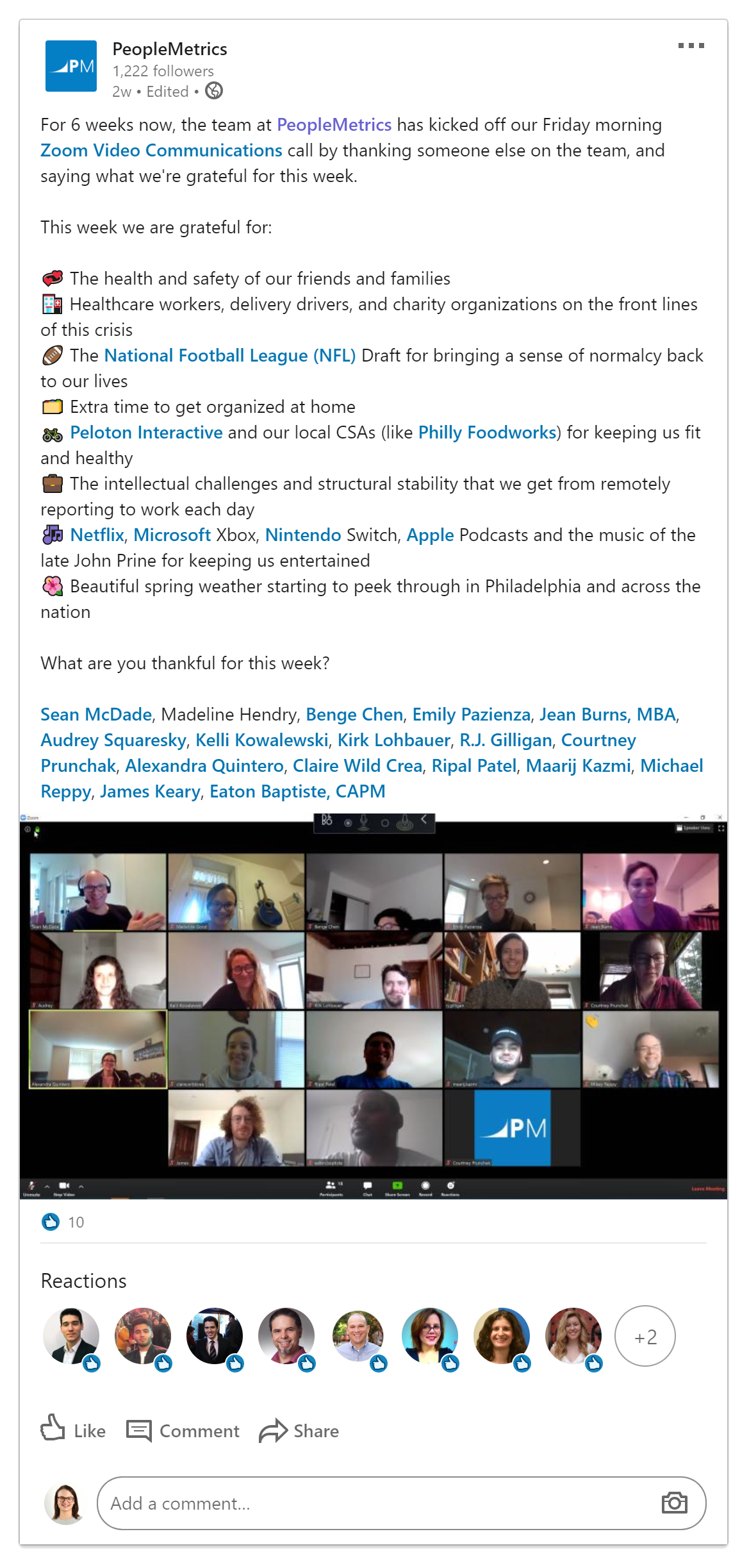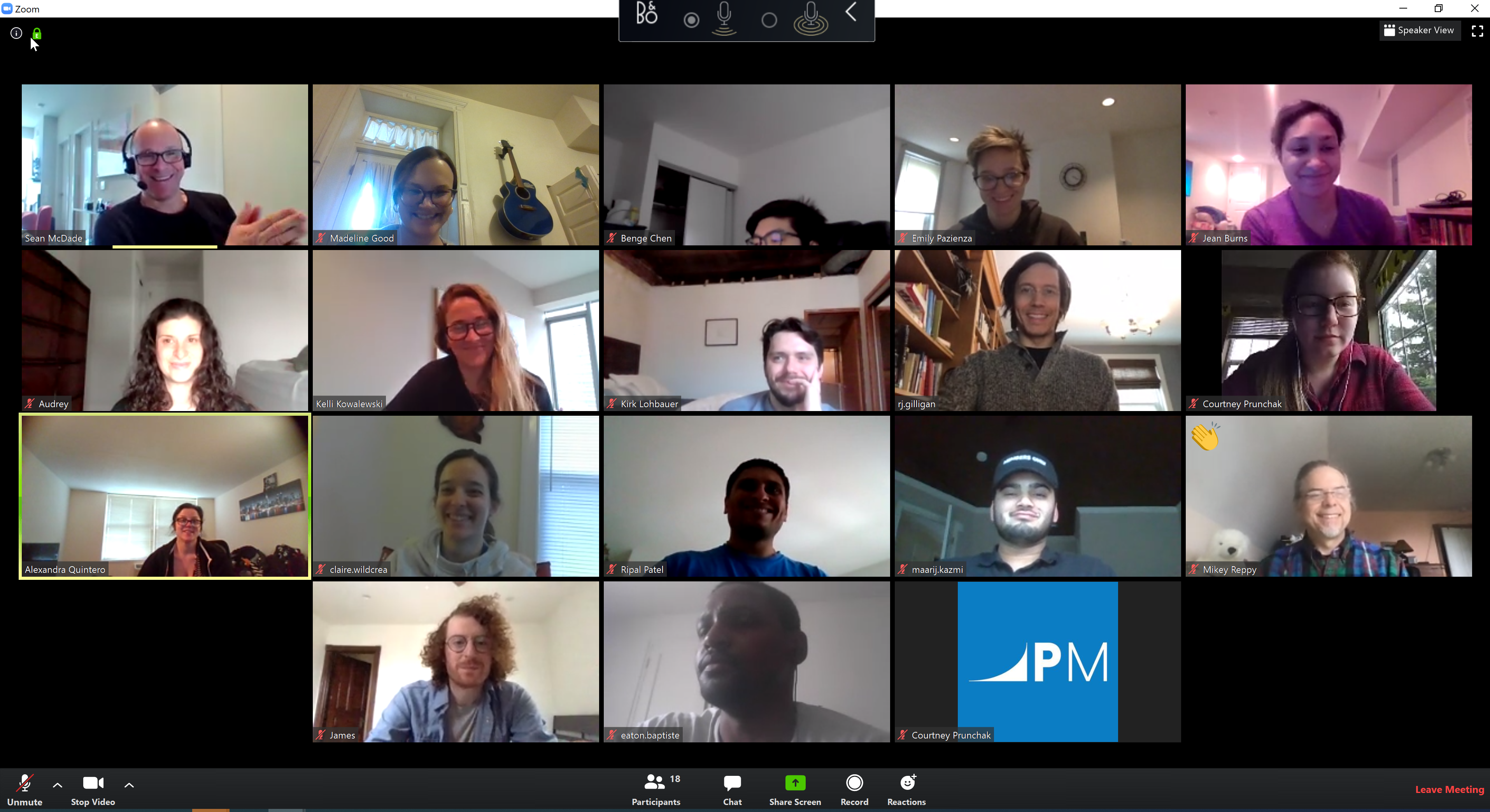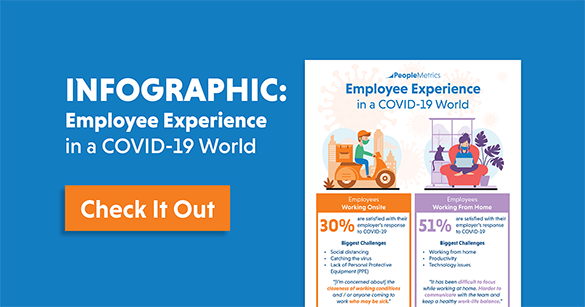As the world of work continues to change in the face of the COVID-19 pandemic, communication skills are increasingly seen as the crucial glue that holds a company together.
Working remotely, uncertainty in the workplace and disconnection from colleagues mean that communication in the workplace must be more effective than ever.
But clear, effective top-down employee communication isn’t enough. Successful corporations must also find ways to ensure positive, productive communication between peers. Even if they can only see each other on Zoom!
Here are five tips for managers who hope to establish healthy team communication to spur a customer-centric culture in 2020:
- Set a good example
- Conduct a communication audit
- Encourage team members to be grateful & enthusiastic about their work
- Help team members feel respected
- Listen to your team
Set a good example
Team members will base their behavior on the models provided by management.
As a manager or executive, your communication skills must be especially sharp in the world of COVID-19. Your goal is still to positively influence (and hopefully inspire) your employees.
People don’t just want connection now, they need it. To set a good example, communicate and do it often.
Your communication should be 2x what it was before the pandemic. That means more regular one-on-ones, all hands company meetings and department meetings. As always, be open to all ideas, support your team members, and set clear expectations.
Finally, don’t let your communication skills tarnish; stay current on business communication strategies.
Conduct a communication audit
PeopleMetrics’ Employee Experience tools can help managers and executives identify breakdowns in communications, which is especially important today.
In addition to gathering employee feedback, PeopleMetrics helps analyze intra-team communications and map how information moves through your organization.
Your goal should be to discover where messages get trapped, so that communication processes may be improved.
Encourage team members to be grateful and enthusiastic about their work
Research in employee experience shows that passionate, enthusiastic employees provide a better customer experience.
In fact, engaged employees attract engaged customers, and higher customer engagement results in higher profits. Make sure your people know how excited you are about your work and encourage employees to be excited about theirs.
Being grateful for having work with so many unemployed is also critical. At PeopleMetrics, we end our weekly company meeting by each team member sharing what they are grateful for in their life right now and one person at the company who they want to thank for the work done during the week.
This simple exercise is incredibly powerful in bringing a team together. 
Help team members feel respected
It’s never been more important to set clear behavior expectations for your team. Let them know that you expect them to treat each other with respect.
If a team member feels disrespected and isolated, do your best to bring them back into the fold.
Speak privately to employees who make others feel excluded. A respectful environment is the best for encouraging creative, productive work.
Listen to your team
Employee feedback is vital to effective communications.
We’ve all heard that true communication is a two-way street, but as managers, it can be difficult to turn off the bullhorn and actually listen to employees.
Not only will listening to your employees uncover unique ideas on how to improve your company’s performance, but it will also provide a good example of effective employee communication for your team members.
Employees need to hear from leadership more than ever.
Use these tips to foster better communication and create a positive employee experience in difficult times.
About the Author
Sean McDade, PhD is the author of Listen or Die: 40 Lessons That Turn Customer Feedback Into Gold. He founded PeopleMetrics in 2001 and is the architect of the company’s customer experience management (CEM) software platform. As CEO, he guides the company’s vision and strategy. Sean has over 20 years of experience helping companies measure and improve the customer experience. Earlier in his career, he spent five years at the Gallup Organization, where he was the practice leader of their consulting division. His company offers CEM software with advanced machine learning solutions and hands-on analytical support to help companies make sense of their CX data. Sean holds a Ph.D. in Business Administration with a specialization in marketing science from Temple University in Philadelphia. He has published eight articles in peer-reviewed scholarly journals and has taught over 25 marketing classes. Sean was named a 40 under 40 award recipient of the Philadelphia region. He is an active Angel Investor, including investments in Tender Greens, CloudMine and Sidecar.
Topic: Employee Experience






